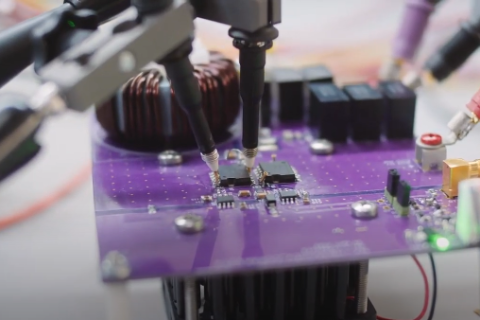The White House plans to announce that Nexperia's China-based facilities will resume shipments of semiconductor components, easing a global supply crisis that had threatened to disrupt auto production across the U.S., Europe, and Asia, according to a person familiar with the matter. The decision follows a trade truce between President Donald Trump and Chinese President Xi Jinping at a summit in South Korea earlier this week.
The move comes after weeks of escalating tension over Nexperia, a Dutch chipmaker owned by China's Wingtech Technology Co. (600745.SS), which was seized by the Dutch government earlier this month under a Cold War-era law. The Hague cited "serious governance shortcomings" in its decision, a move that prompted Beijing to block Nexperia products from leaving China, halting shipments that form the backbone of global automotive and electronics supply chains.
According to the Chinese Commerce Ministry, Beijing now plans to "comprehensively consider the actual situation of enterprises and grant exemptions to exports that meet the criteria." In a statement on Saturday, the ministry added, "As a responsible major country, China fully considers the security and stability of domestic and international production and supply chains."
The easing of the export ban is expected to avert immediate production shutdowns for carmakers already operating on tight inventories. Automotive manufacturers, including Honda and Stellantis, had warned that a prolonged disruption in Nexperia's chip supply could halt assembly lines within weeks. Honda confirmed that it suspended production at a Mexican facility on Tuesday and was adjusting operations in the U.S. and Canada. Stellantis said it had established a "war room" to monitor the crisis.
Nexperia's components-transistors, diodes, and other basic power control chips-are inexpensive but essential. They are used in nearly every electronic device, from smartphone chargers to vehicle braking systems and airbags. Roughly 70% of Nexperia's chips produced in the Netherlands are sent to China for packaging and re-exported, making the ban a significant choke point for the global supply chain.
The Netherlands' decision to take control of the company triggered strong reactions in Beijing. The Chinese Foreign Ministry accused The Hague of "improper interference in the internal affairs of enterprises" and said it was responsible for "the current disruption of global production and supply chains." The U.S. had previously placed Wingtech, Nexperia's parent company, on its restricted entity list in December 2024, citing national security risks.
In a letter to customers earlier this week, Nexperia said it had suspended supplies of wafers to its Chinese assembly plant, worsening fears among automakers and suppliers. The European Automobile Manufacturers' Association (ACEA) warned that chip inventories could run out "within weeks" unless shipments resumed. "Without these chips, European automotive suppliers cannot build the parts and components needed to supply vehicle manufacturers and this therefore threatens production stoppages," the group said.
Officials familiar with the U.S.-China talks said the Nexperia issue was a key point of negotiation at the Trump-Xi summit. While Beijing's official readout omitted direct mention of semiconductors, U.S. officials described the agreement as a "limited but meaningful step" to ease trade tensions and protect manufacturing output. The White House is expected to release a fact sheet detailing the deal, which includes provisions to restore Nexperia's export flow.
In Europe, Nexperia remains under close scrutiny. British lawmakers forced the company last year to sell its Newport, Wales, facility on national security grounds, though it continues to operate a smaller site in Stockport. The Dutch seizure followed similar concerns that Chinese state-backed ownership could give Beijing leverage over critical technology supply chains.





